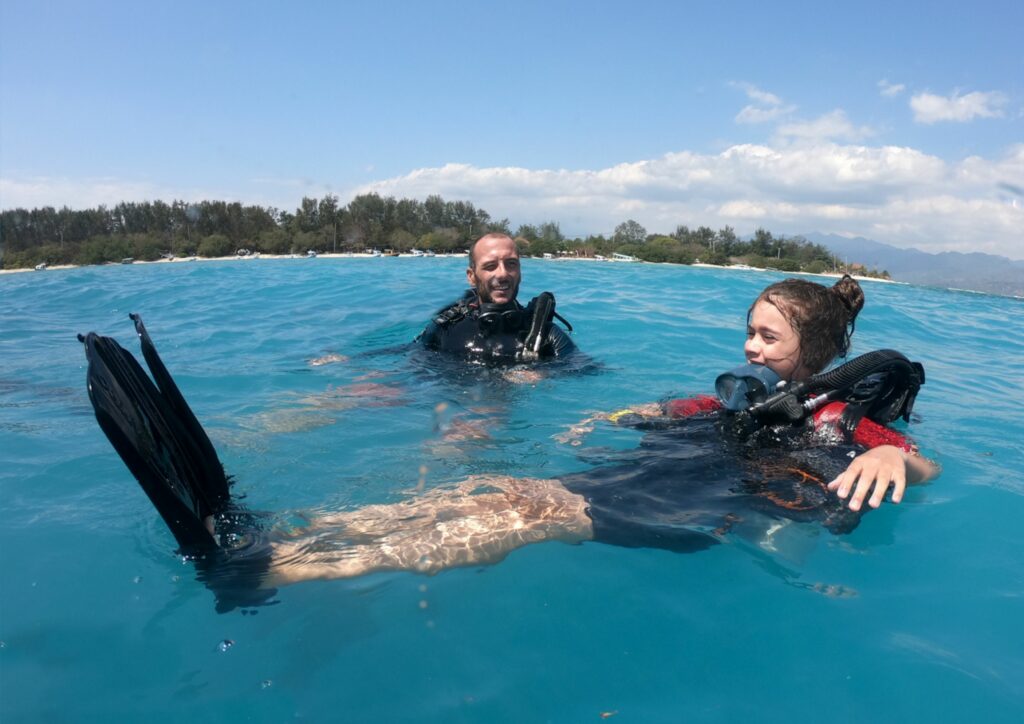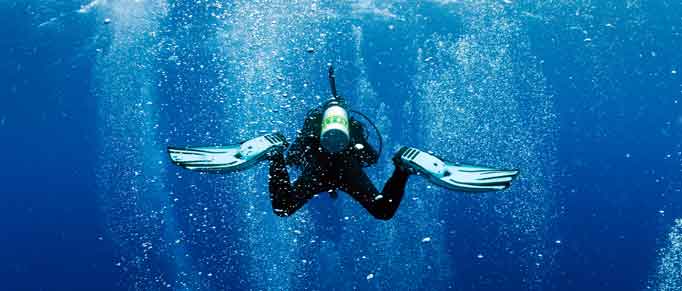Exploring the underwater world is a breathtaking experience, and taking the plunge into scuba diving requires the right preparation. For anyone considering this adventure, understanding the essential requirements for scuba diving courses is key to ensuring a safe and enjoyable dive. From the open water course structure that lays the foundation for diving skills to the importance of swimming skills for the pool test, every aspect is crucial.
Additionally, aspiring divers should know about their options for snorkeling as a beginner’s route and the significant differences between swimming and diving techniques, including vital breathing techniques that can enhance their underwater experience. Let’s dive deeper into what it takes to prepare for an exhilarating scuba diving journey.
Understanding Open Water Courses Structure
The open water course structure is designed to provide students with both theoretical knowledge and practical skills essential for scuba diving courses. This course typically includes classroom sessions, confined water training, and open water dives. During the confined water training, students must demonstrate specific swimming skills for pool tests, such as floating and mastering buoyancy control. Additionally, participants learn vital breathing techniques to manage air consumption underwater. For those who prefer a more leisurely experience, there are options for snorkeling, which allow individuals to enjoy marine life without the complexities of diving. Understanding these components in scuba diving courses is crucial for a successful transition from novice to confident diver.
Key Swimming Skills Required for Pool Tests

Before enrolling in an open water course, it’s crucial to possess certain swimming skills for the pool test. Typically, this assessment requires candidates to demonstrate comfort in the water through various activities. Basic skills include swimming a minimum distance, often 200 meters, and treading water for 10 minutes. These exercises ensure that participants can stay afloat and manage themselves in case of an emergency. While snorkeling can be an option for some, mastering the ability to swim efficiently is vital for transitioning into scuba diving. Understanding the fundamental differences between swimming and diving, including specialized breathing techniques, will further enhance one’s readiness for underwater adventures.
Exploring Options: Snorkeling vs. Scuba Diving
When considering aquatic adventures, snorkeling and scuba diving both offer unique experiences. Snorkeling is often seen as an introductory option that allows individuals to explore shallow waters with minimal equipment, primarily a mask, snorkel, and fins. This makes it accessible for those lacking extensive swimming skills. Conversely, scuba diving requires a more structured approach, notably an open water course structure that emphasizes safety and technique. Essential swimming skills for the pool test highlight the need for comfort in the water, even as diving introduces complexities like breathing techniques and deep-water navigation that go beyond simple swimming. Ultimately, choosing between snorkeling and scuba diving hinges on your comfort level and eagerness to delve deeper into underwater exploration.
The Differences Between Swimming and Diving Techniques
Swimming and diving are two distinct aquatic activities that require different techniques and skills. While swimming focuses on staying afloat and propelling oneself through the water’s surface, diving involves descending below the surface to explore the underwater world. One of the key differences lies in breathing techniques; divers must master controlled breathing to manage air supply and maintain buoyancy, whereas swimmers often breathe rhythmically as they swim. Furthermore, swimming skills for the pool test are essential for those looking to enroll in an open water course, ensuring participants are comfortable in the water before they dive deeper. Understanding these distinctions can greatly enhance a diver’s experience and safety while exploring marine environments.
Essential Breathing Techniques for Beginners
Breathing techniques are fundamental for beginners in scuba diving, as they directly influence comfort and safety underwater. Proper breathing allows divers to manage their buoyancy and conserve energy, which is vital in achieving a relaxed state while exploring the depths. Learning to breathe slowly and deeply helps mitigate anxiety, particularly during the initial stages of an open water course structure. It’s essential to practice these techniques in both the pool and open water before undertaking your first adventure. Additionally, understanding the difference between swimming and diving can help improve your breathing rhythm and make your underwater experience more enjoyable.
Safety Protocols and Skills Training in Scuba Courses
Safety protocols and skills training are paramount in scuba courses to ensure divers can handle the underwater environment with confidence. The open water course in scuba diving courses structure includes detailed instruction on potential hazards, emergency procedures, and the importance of buddy systems. Swimming skills for the pool test are essential; divers must demonstrate proficiency in a series of predetermined strokes and endurance exercises. Additionally, some courses may offer an option for snorkeling, which serves as a great introduction for beginners. Understanding the difference between swimming and diving is crucial—diving requires specific breathing techniques that help manage buoyancy and air supply, ensuring a safe underwater experience.
The Role of Swimming Proficiency in Scuba Diving Courses
Swimming proficiency plays a crucial role in scuba diving courses, as it ensures safety and comfort in the water. Participants in an open water course must demonstrate adequate swimming skills, particularly during the pool test, which typically includes swimming a certain distance without assistance. This foundational skill not only boosts confidence in scuba diving courses but also distinguishes the differences between swimming and diving. While swimming focuses on propulsion and endurance, diving emphasizes buoyancy control and breathing techniques. For those who may not be confident swimmers, options like snorkeling can serve as a gentle introduction to underwater exploration, allowing them to build their skills gradually.
Preparing for Your First Dive: What You Need to Know
Preparing for your first dive is an exciting journey, and understanding the requirements is crucial. Enrolling in an open water course provides a structured learning path where you’ll learn the fundamentals of diving. Prior swimming skills are often assessed to ensure safety during the pool test; hence, being comfortable in the water is essential. If you’re unsure about committing to diving, consider starting with snorkeling as an alternative. It’s important to note the difference between swimming and diving as diving requires specific breathing techniques and skills that go beyond typical swimming strokes. Mastering these techniques not only enhances your diving experience but also ensures you enjoy a safe adventure.
Diving into Your Underwater Journey
Embarking on a scuba diving course is an exhilarating journey that combines both skills and knowledge thru scuba diving courses. Understanding the open water course structure is crucial as it prepares you for what to expect and helps build your confidence in the water. Additionally, swimming skills for the pool test play a significant role, ensuring that you can navigate underwater safely and effectively. It’s worth noting that while you may also consider an option for snorkeling, the depth of knowledge and skills acquired through scuba diving courses vastly enriches your underwater experience.
As you transition from swimming to diving, remember that mastering key concepts, such as breathing techniques, is just as important as physical skills. The difference in scuba diving courses, between swimming and diving is profound; diving requires an understanding of not just physical skills but also the nuances of the underwater environment. With the right preparation and mindset, you can unlock a world of adventure and exploration beneath the waves. Ready to dive deeper? Your underwater adventure awaits!

I love how this article emphasizes the difference between swimming and diving techniques. It’s so important to master those breathing techniques for a safe and enjoyable dive.
Hi Khai Tan, thank you for sharing your thoughts on our article! We’re thrilled to hear that you appreciate the emphasis on breathing techniques in scuba diving. At Gill Divers, we believe that understanding the difference between swimming and diving is crucial for a safe and enjoyable dive. Our open water course structure is designed to provide students with both theoretical knowledge and practical skills essential for scuba diving courses. We’re always here to help, so feel free to reach out to us if you have any questions or concerns! You can contact us at Tel: +65 6734 9373 or Email: [email protected]. We look forward to hearing from you and helping you dive deeper into the world of scuba diving!
I totally agree that understanding the open water course structure is crucial before diving into scuba diving. The article highlights the importance of swimming skills for the pool test, which I think is often overlooked.
Hi Eve, thank you for sharing your thoughts on understanding the open water course structure before diving into scuba diving. We couldn’t agree more! Mastering swimming skills is indeed crucial for a safe and enjoyable diving experience. Our open water courses are designed to provide students with both theoretical knowledge and practical skills essential for scuba diving. If you have any questions or concerns about our courses, feel free to reach out to us at Tel: +65 6734 9373 or Email: [email protected]. We’re always here to help. Looking forward to hearing from you!
I’m excited to start my scuba diving journey soon! This article has given me a lot of useful information on what to expect and how to prepare. Thanks for sharing!
Hi Nadia, Congratulations on starting your scuba diving journey! We’re thrilled to hear that our article has been helpful in preparing you for what’s to come. Remember to prioritize your swimming skills and practice your breathing techniques before embarking on your first dive. Don’t hesitate to reach out if you have any questions or concerns. Tel: +65 6734 9373, Email: [email protected]